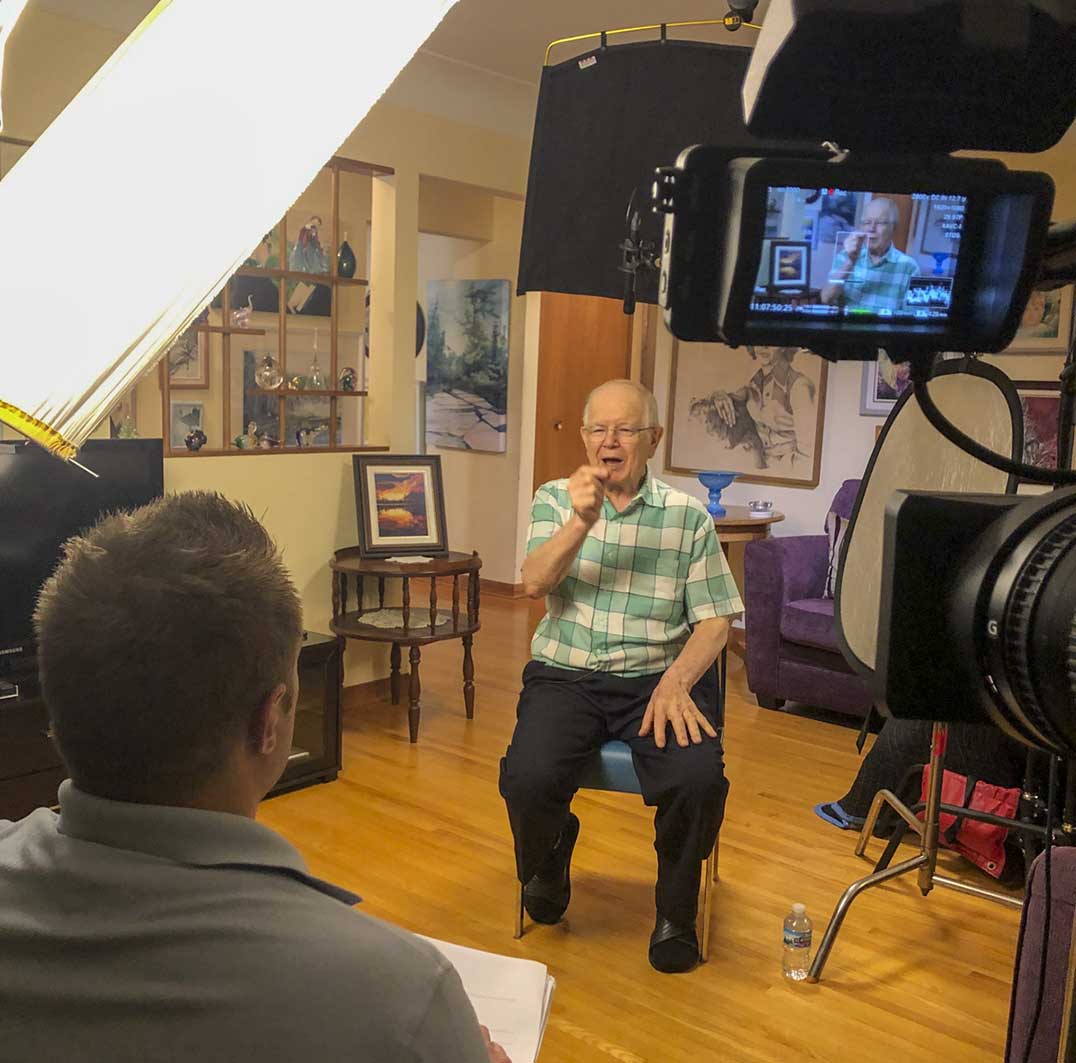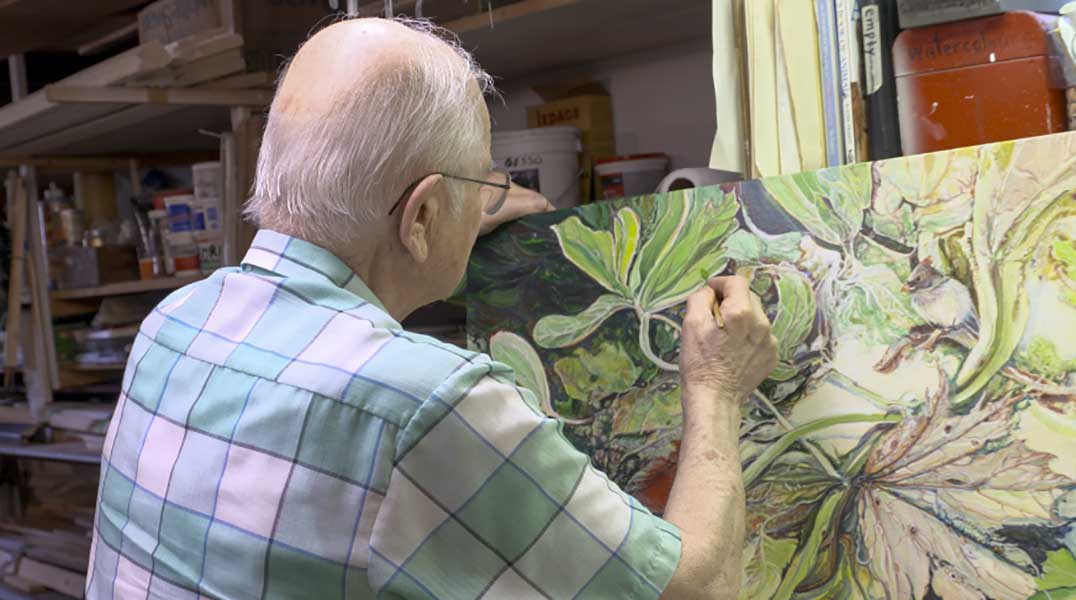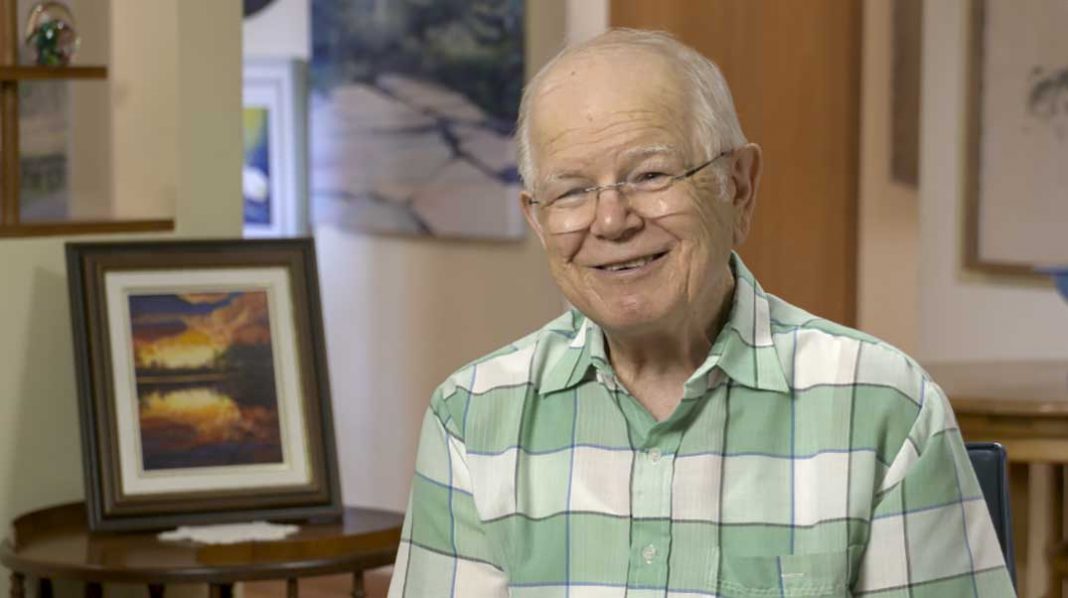WINDSOR – Peter Bering was only a child when he and his family went from being wealthy landowners in then-Yugoslavia to residents of a concentration camp built upon his family’s land, the story of which is the subject of his new autobiography and a forthcoming documentary to share the story of his experience and an important moral lesson about kindness.
“I’ve known Peter for a long time,” said filmmaker and biography project organizer John Scannell. “It’s Peter telling his story from beginning to end. The book is just about finished and we’re about to submit it to publishers.”
The 1940s-era concentration camp sprang up when Nazis took over his hometown of Molin (now a part of Serbia). It was a settlement of ethnic Germans who created a farming community. There were many small pockets of German towns throughout modern Serbia.
“In 1945, the Allies and the Americans drove the Germans back. Now, all of a sudden, we were the bad guys as far as the communist Serbs were involved,” said Mr. Bering, who makes his home seasonally on Manitoulin.
When the Germans first came into the town, Mr. Bering’s family didn’t resist them because they were simple farmers and had an unspoken understanding that they would both leave each other alone. The communist loyalists, however, had been actively fighting off the Nazis and felt slighted by the lack of fighting effort from Mr. Bering’s family.
“We were considered the bad guys too, because we didn’t fight out the Germans, we didn’t resist like the communists did. Now, that’s when hell broke loose. We were starved to death, except for a few people,” said Mr. Bering. “If you managed to just survive, it was a good day.”
This was not up to chance, but rather a reflection of the moral code brought on by the way his mother treated all others. The Bering family had roughly 20 workers on their property and, although the family was much richer than their workers, they always treated them fairly.

“His mom used to treat them as part of the family. She used to feed them and they sat at the same table, which is almost unheard of,” said Mr. Scannell. “They were considered slaves and normally earned low wages. His mom gave them food, clothes, good wages and would give them places to sleep.”
After pushing back the Nazis, those communist partisans turned the town of 4,000 into a concentration camp with thousands more people than the town originally held. They used a lot of the family’s land for the camp and employed the former farm workers in various posts including as guards of the facility.
“My babysitter was an orphan, a Serbian communist orphan. Now, that same man who was my babysitter ended up as one of the guards of the camp. He was one of the biggest gifts in my life. When he saw me, he always made a point; one hand slapped me on my back, but with his other hand he put food down my shirt,” said Mr. Bering.
Those kinds of gestures of good will were common with the former employees working at the camp. Mr. Scannell shared a story he heard from Mr. Bering about his mother being part of a line to be executed by firing squad. She was instructed to appear to fall into the mass of bodies and later crawled up through them to escape.
“One time, Peter went out with his two best friends to pick grapes on an old property they used to own. When the guards came they shot his friends in the head, but for him, they shot at the ground. Unfortunately, a rock fragment went into his leg,” said Mr. Scannell.
Through his mother’s perseverance, he and his siblings managed to escape Yugoslavia and travelled to Austria by foot as refugees.
“She was by far the greatest woman I’ve ever known. It was through her ingenuity and generosity that we managed to survive the war,” said Mr. Bering.
Now, he is publishing this account of his life as a teachable exercise for others who find themselves under ‘captors’ in any sense of that word, whether it be an employer, a prison or even society in general.
“Peter is trying to send the message, ‘if you treat people well through good and bad, you’ll see what happens when the tides change’,” said Mr. Scannell. “If you always treat people with respect, you’ll always get it back.”

Mr. Scannell said that he is trying to shed light on the plight of other ethnic groups that also suffered mass genocides in addition to the better-known Jewish Holocaust, though he cautions that he is in no way trying to delegitimize that plight.
“His story was so powerful and I found out there were concentration camps running throughout Europe before the war, during and after. More awareness is needed,” said Mr. Scannell.
Mr. Bering also got some positive growth from the otherwise difficult experience—he began to hone his skills as a visual artist. He has created more than 650 works during his lifetime and approximately 500 exist in people’s homes, according to Mr. Scannell.
“We never would have had any of that if Peter and his mom wouldn’t have treated those people with respect and dignity back when they were in charge. That lesson is very powerful,” he said.
As Remembrance Day comes around once more, Mr. Bering said he would be pausing to reflect on his journey and how he likely never would have survived that time without the persistence and benevolence of his mother.
“I should remember my mom and dad, and my brothers and sisters,” he said. “It’s the memory of at one time, I had nothing. Now, as the book says, ‘I went from heaven to hell and back to heaven again.’ That’s what Remembrance Day is for me,” said Mr. Bering.




